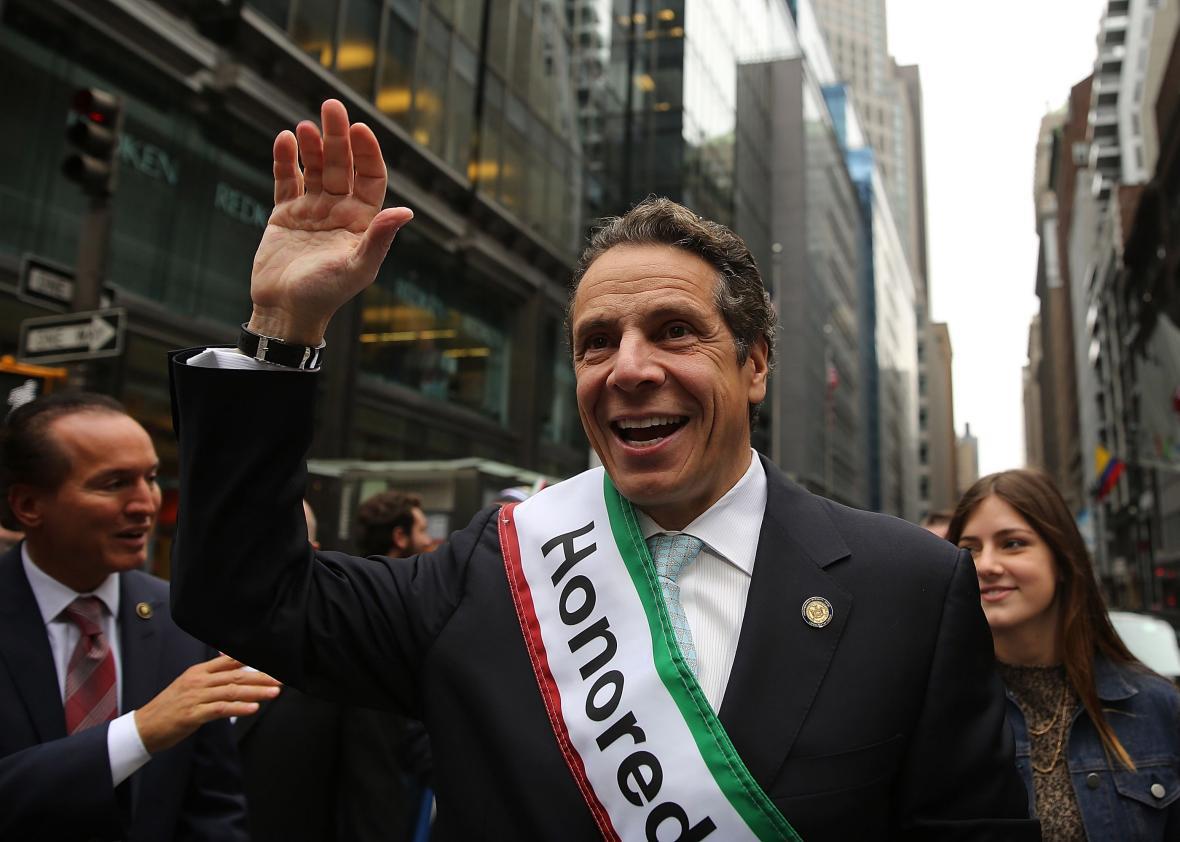This weekend, New York lawmakers agreed to a first-in-the-nation deal that would make public colleges tuition-free for students whose families earn less than $125,000 a year. It was a quick and tidy win for Gov. Andrew Cuomo, who only proposed the program in January, and who now has another lefty-pleasing résumé item to tout during his inevitably doomed 2020 presidential run.
In the eyes of free-college advocates, however, the program leaves a lot to be desired. Which is why you may have noticed some progressives trashing the thing on Twitter.
Critics have singled out a few major issues with Cuomo’s measure, which he’s dubbed the Excelsior Scholarship. First, it may be more helpful to middle-class than poorer families, who already tend to pay very little in tuition. That’s because it’s a so-called last dollar program—New York will cover the cost of tuition, but only after subtracting the value of other grants and scholarships students receives. So if an undergraduate gets a federal Pell grant, for instance, they’ll still have to spend that money covering the cost of classes. New York will then pick up the rest of the tab.
This somewhat undermines one of the big rationales behind making college tuition-free in the first place. A lot of progressives hope that by zeroing out tuition, low-income students would be able to use their other scholarship and grant money to cover living expenses. That might let them spend less time working, hopefully allowing them to attend class full time, which gives them a stronger chance of graduating.
And about those living expenses: Students will still be expected to pay for them. And at New York’s public colleges, room and board is often the biggest cost. For students attending SUNY-Binghamton, for example, it’s more than $14,000, versus $6,470 for tuition.*
Thanks to the last-dollar issue, the progressive think tank Demos, a big free-college booster, only managed to offer muted praise for the Excelsior Scholarship, calling it a good “step forward” that left much to be desired. “The reality of the college affordability crisis is that half of the cost of going to college are related to expenses other than tuition,” Demos Vice President of Policy and Research Tamara Draut said in a statement.* “New York State’s program could be more beneficial for struggling students by waiving tuition upfront and allowing grant aid to cover other college costs such as books, fees and living expenses.”
But that’s not really the thing that has progressives really pissed about Cuomo’s program. The biggest complaints have focused on the pointless and parochial requirement that students stay in New York state after graduation for as many years as they received the Excelsior funding. Otherwise, their grants will turn into loans. (There will be deferments for graduate school and “extreme hardship.”)
The reasoning here isn’t too hard to fathom. New York taxpayers are funding these kids’ education. When they graduate, they should stay and contribute to the state’s well-being.
But this catch is also conceptually silly. Tethering graduates to New York for four or five years is pointless—keeping young people around is not even close to the Empire State’s most pressing issue (see: Brooklyn). Philosophically it’s also off-key. New York’s public colleges overwhelmingly cater to in-state students, whose parents pay plenty of taxes to Albany. It is unclear why those students should owe anything more for the privilege of an affordable education, especially if, as Cuomo said in his statement, “Today, college is what high school was.” And finally, it just makes things complicated. Which again, undermines the concept behind making college free—it’s supposed to make the process of obtaining an education less intimidating and bewildering for students without much in the way of guidance or support.
All of this has Sara Goldrick-Rab, perhaps the chief intellectual advocate for free college, very, very disappointed.
So, on the one hand, Cuomo deserves credit for muscling a bill to make college at least nominally tuition-free through Albany, an effort that required overcoming opposition from private colleges. On the other hand, he designed a bill that policy thinkers who’ve been beating the drum for free college are probably hoping other states won’t try to copy. You win some. You lose some.
*Correction, April 10, 2017: This post originally misspelled SUNY-Binghamton. It also misidentified Tamara Draut as the president of Demos.
*Correction, June 19, 2017: This post originally misidentified SUNY-Binghamton as New York’s flagship state university.
